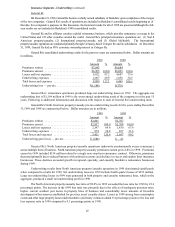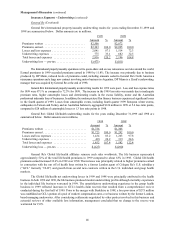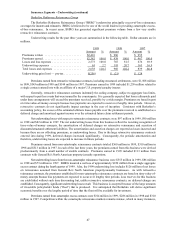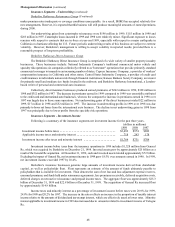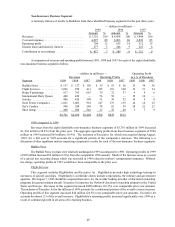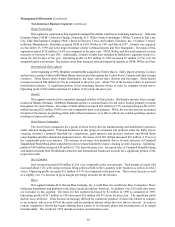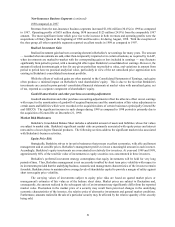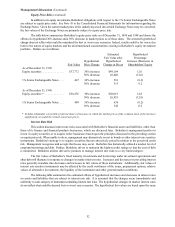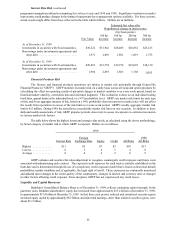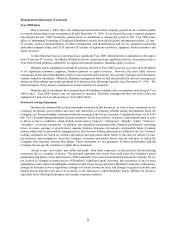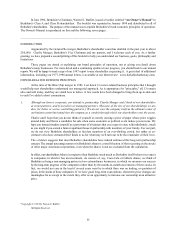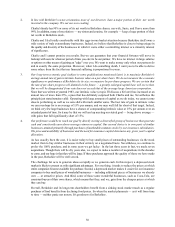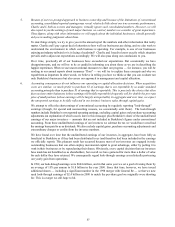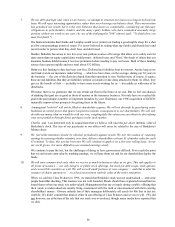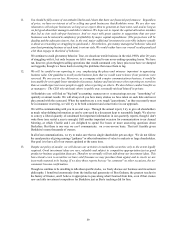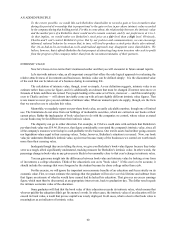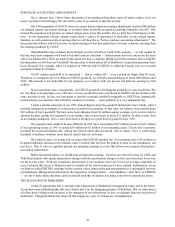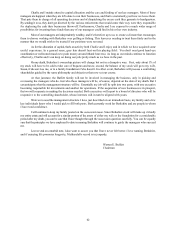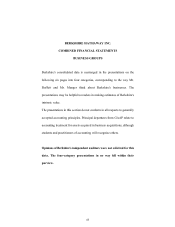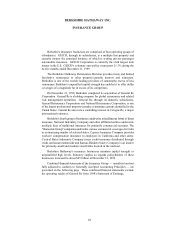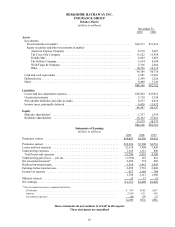Berkshire Hathaway 1999 Annual Report Download - page 56
Download and view the complete annual report
Please find page 56 of the 1999 Berkshire Hathaway annual report below. You can navigate through the pages in the report by either clicking on the pages listed below, or by using the keyword search tool below to find specific information within the annual report.55
In June 1996, Berkshire's Chairman, Warren E. Buffett, issued a booklet entitled "An Owner's Manual" to
Berkshire's Class A and Class B shareholders. The booklet was reprinted in January 1999 and distributed to all of
Berkshire’s shareholders. The purpose of the manual was to explain Ber kshire's broad economic principles of operation.
The Owner's Manual is reproduced on this and the following seven pages.
____________________________________________________________________
INTRODUCTION
Augmented by the General Re merger, Berkshire’s shareholder count has doubled in the past year to abou t
250,000. Charlie Munger, Berkshire's Vice Chairman and my partner, and I welcome each of you. As a further
greeting, we have prepared a second printing of this booklet to help you understand our business, goals, philosophy and
limitations.
These pages are aimed at explaining our broad principles of operation, not at giving you detail about
Berkshire's many businesses. For more detail and a continuing update on our progress, you should look to our annual
reports. We will be happy to send a copy of our 1997 report to any shareholder requesting it. A great deal of additional
information, including our 1977-1996 annual letters, is available at our Internet site: www.berkshirehathaway.com.
OWNER-RELATED BUSINESS PRINCIPLES
At the time of the Blue Chip merger in 1983, I set down 13 owner-related business principles that I thought
would help new shareholders understand our managerial approach. As is appropriate for "principles," all 13 remain
alive and well today, and they are stated here in italics. A few words have been changed to bring them up-to-date and
to each I've added a short commentary.
1. Although our form is corporate, our attitude is partnership. Charlie Munger and I think of our shareholders
as owner-partners, and of ourselves as managing partners. (Because of the size of our shareholdings we are
also, for better or worse, controlling partners.) We do not view the company itself as the ultimate owner of
our business assets but instead view the company as a conduit through which our shareholders own the assets.
Charlie and I hope that you do not think of yourself as merely owning a piece of paper whose price wiggles
around daily and that is a candidate for sale when some economic or political event makes you nervous. We
hope you instead visualize yourself as a part owner of a business that you expect to stay with indefinitely, much
as you might if you owned a farm or apartment house in partnership with members of your family. For our part,
we do not view Berkshire shareholders as faceless members of an ever-shifting crowd, but rather as co-
venturers who have entrusted their funds to us for what may well turn out to be the remainder of their lives.
The evidence suggests that most Berkshire shareholders have indeed embraced this long-term partnership
concept. The annual percentage turnover in Berkshire's shares is a small fraction of that occurring in the stocks
of other major American corporations, even when the shares I own are excluded from the calculation.
In effect, our shareholders behave in respect to their Berkshire stock much as Berkshire itself behaves in respect
to companies in which it has an investment. As owners of, say, Coca-Cola or Gillette shares, we think of
Berkshire as being a non-managing partner in two extraordinary businesses, in which we measure our success
by the long-term progress of the companies rather than by the month-to-month movements of their stocks. In
fact, we would not care in the least if several years went by in which there was no trading, or quotation of
prices, in the stocks of those companies. If we have good long-term expectations, short-term price changes are
meaningless for us except to the extent they offer us an opportunity to increase our ownership at an attractive
price.
*Copyright © 1996 By Warren E. Buffett
All Rights Reserved


